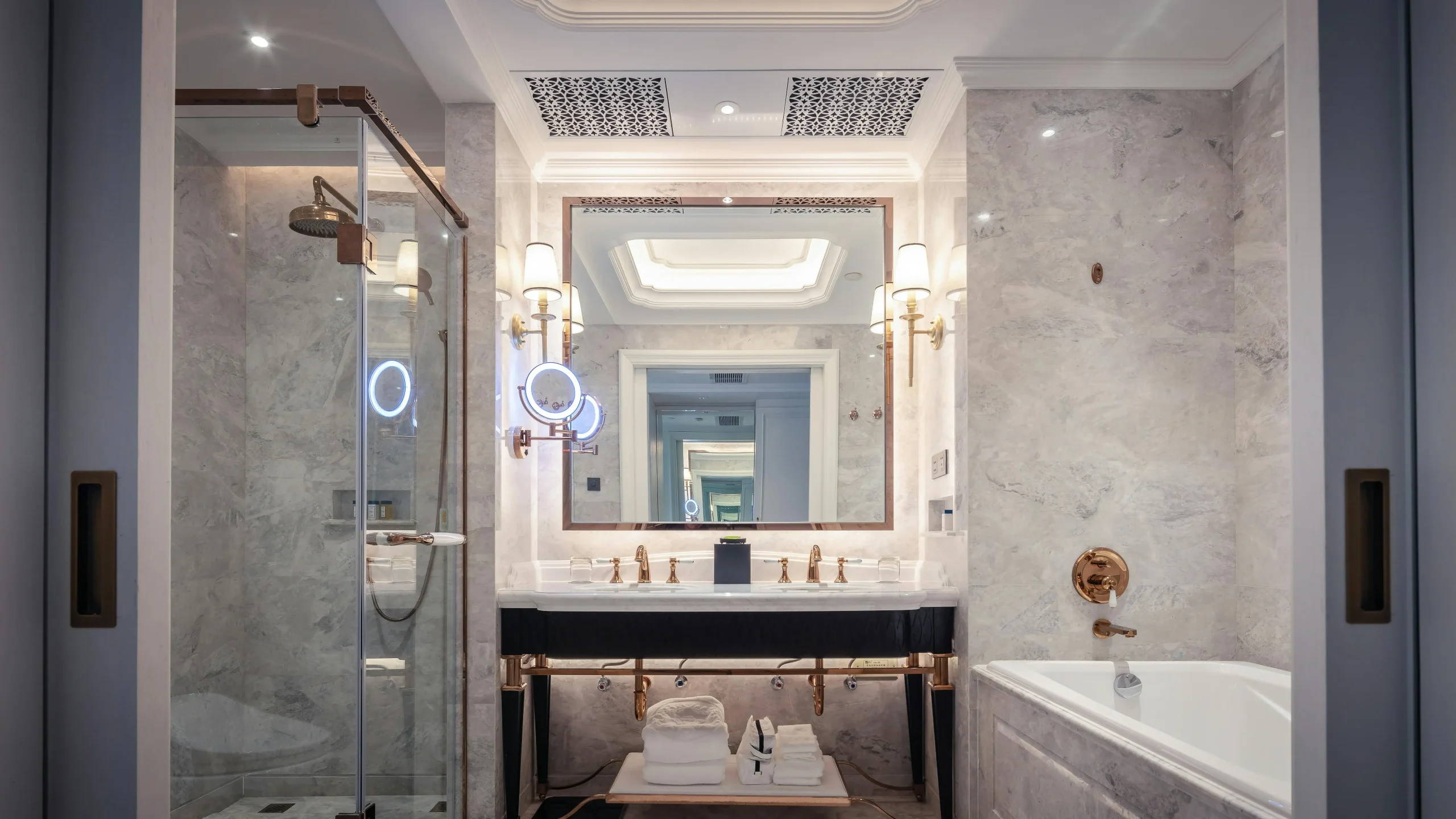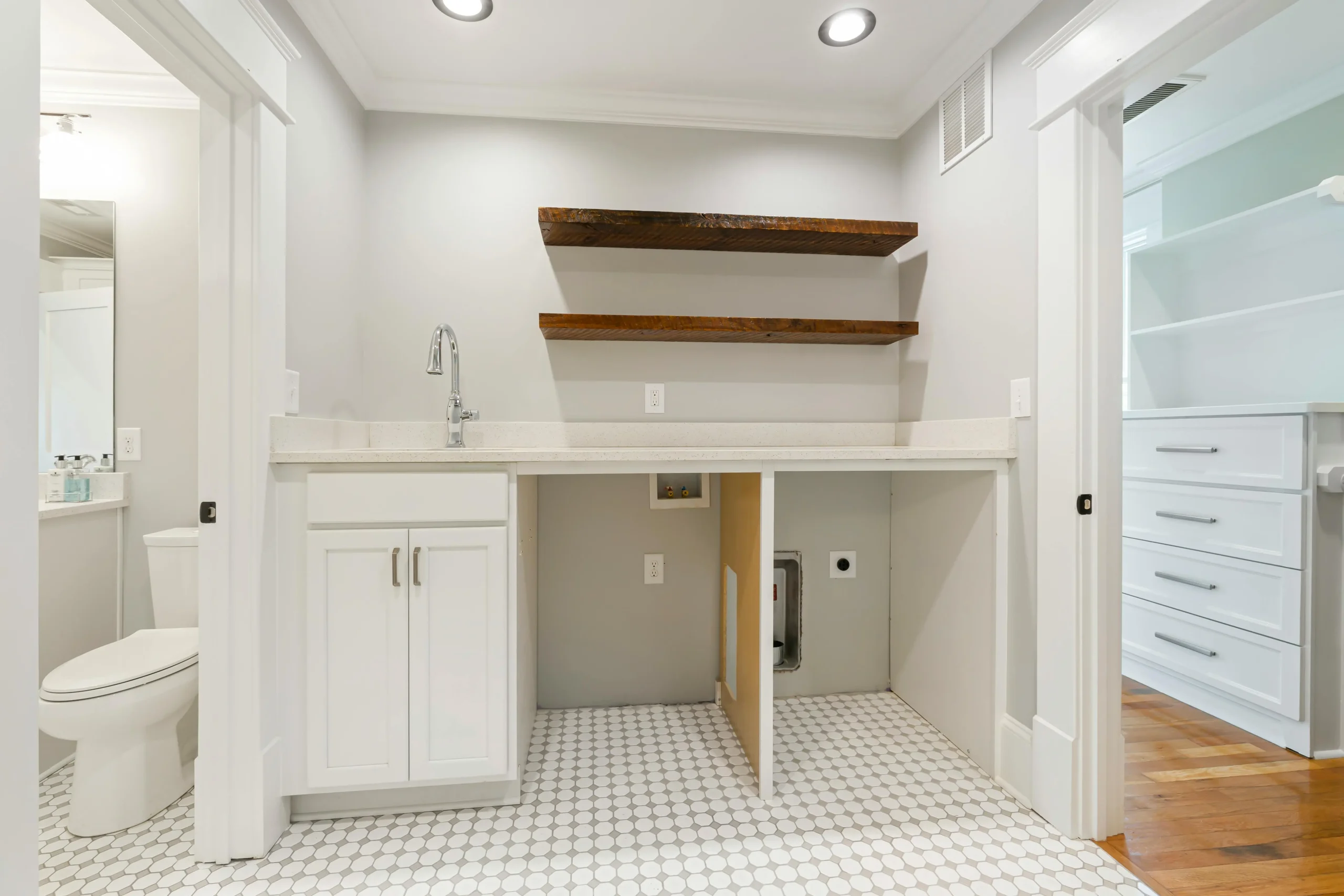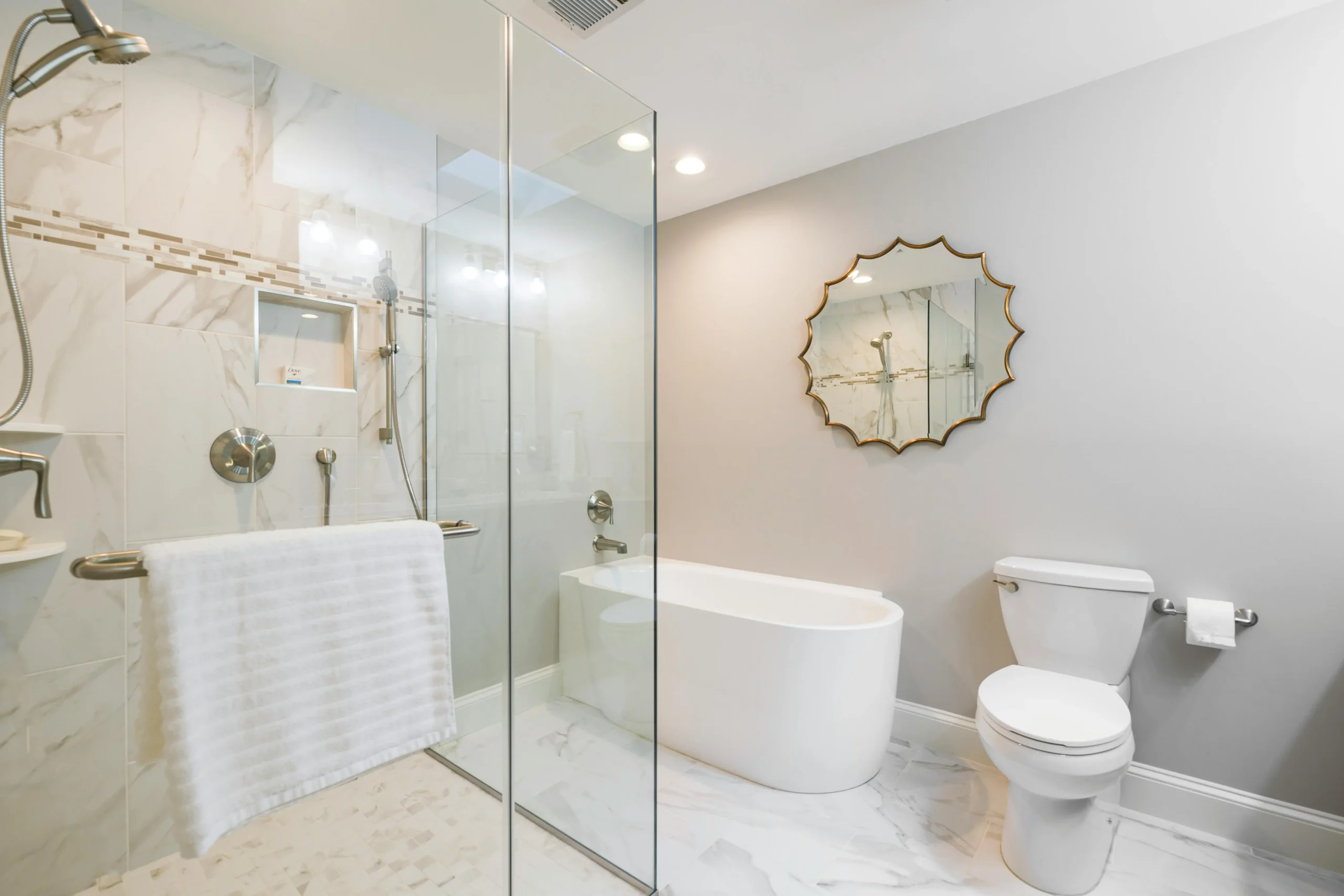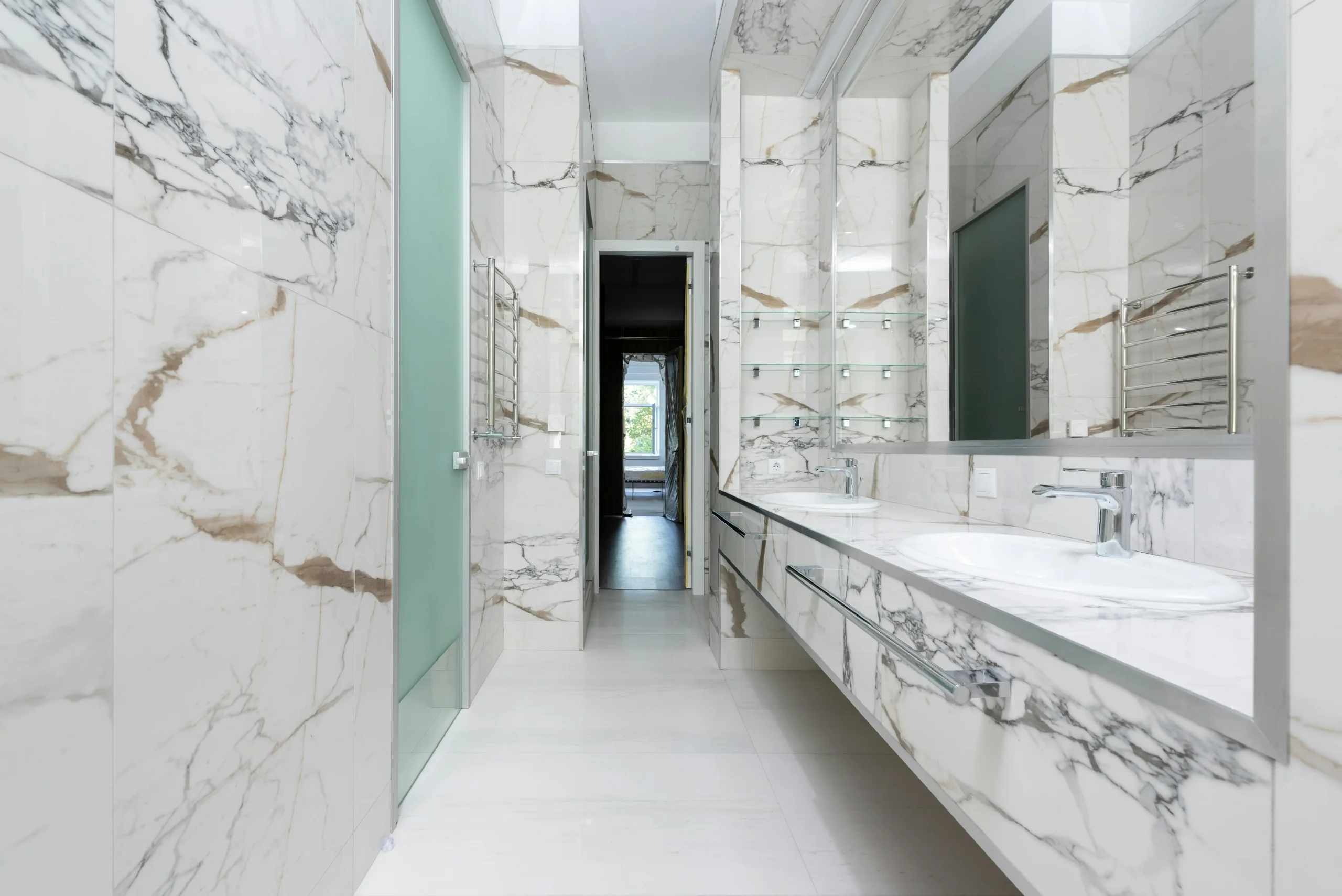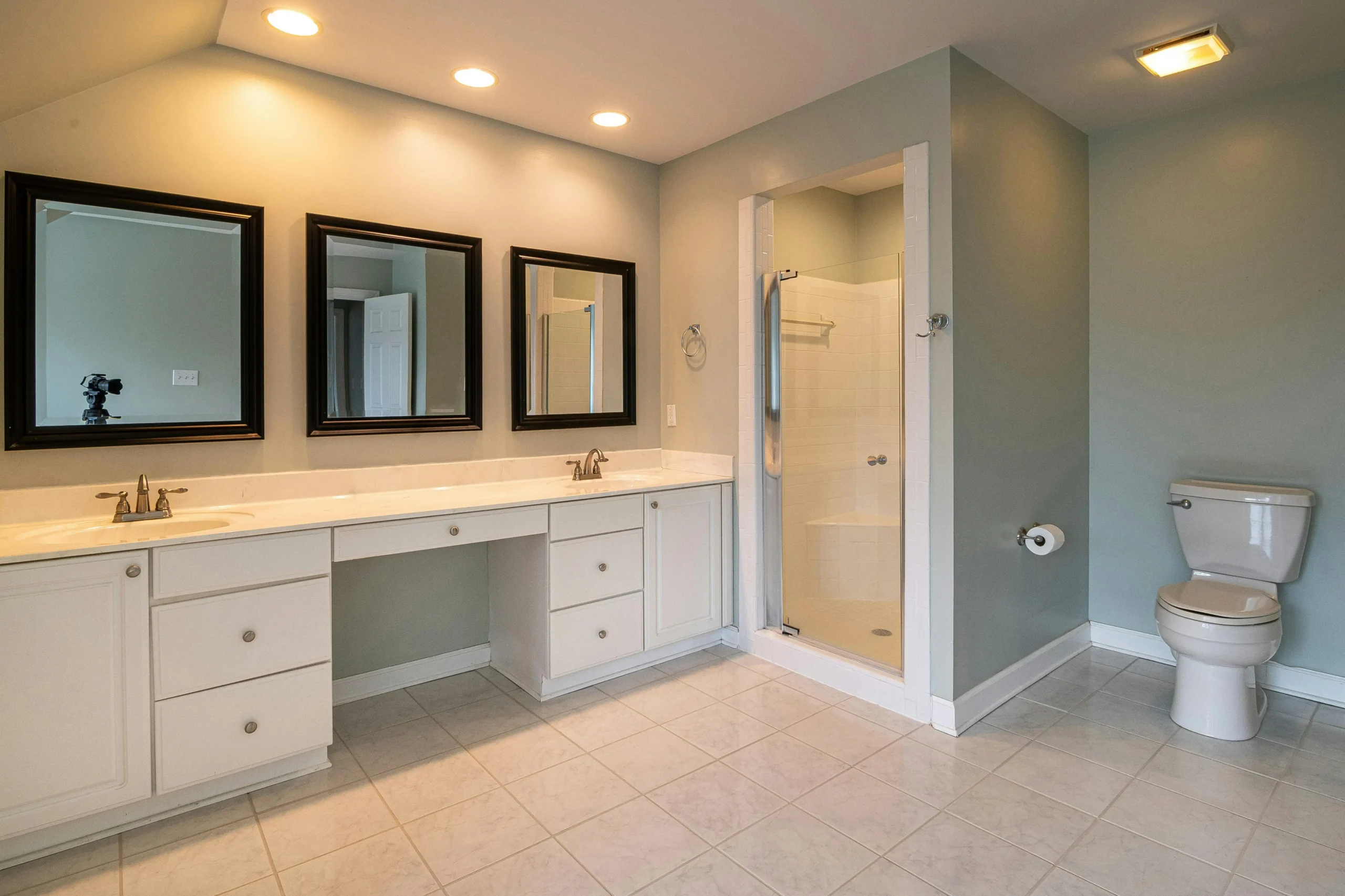Breaking Down Irving Kitchen Remodel Costs
In Irving, Texas, kitchen remodeling costs can range significantly based on your goals, kitchen size, and the quality of materials used. A basic kitchen update, which may include resurfacing cabinets, swapping countertops, and adding a fresh coat of paint, typically starts at around $7,500 to $15,000. If you’re considering a mid-level remodel involving semi-custom cabinets, upgraded flooring, new lighting, and improved appliances, you can expect costs between $20,000 and $35,000. On the higher end, full-scale kitchen remodels that include layout changes, custom cabinetry, premium appliances, granite or quartz countertops, and luxury flooring can easily cost $45,000 to $70,000 or more. Additional expenses may include permits, design consultations, demolition, and site preparation. Labor and material prices in Irving are relatively moderate compared to coastal metros, which gives homeowners more flexibility in how they allocate their budget. It’s always smart to gather at least three quotes from licensed local contractors and be sure to clarify what’s included in the cost. Proper planning upfront is the best way to avoid costly surprises and ensure your remodel stays within budget.
Factors Influencing Remodeling Costs
Multiple factors can influence the overall cost of a kitchen remodel in Irving, and understanding them can help you make more strategic decisions. The size of your kitchen is a major factor—larger kitchens naturally require more materials, time, and labor. The extent of the remodel also matters. Are you simply updating finishes, or are you gutting the space and changing the layout entirely? High-end materials such as custom cabinets, imported tile, or luxury stone will increase your expenses significantly. Labor rates in Irving are fair, but hiring licensed electricians, plumbers, or specialty installers will still add up. Another cost factor is whether structural work or upgrades to plumbing and electrical systems are required to meet modern codes. Homeowners must also consider permit fees and inspection costs, especially for remodels involving major changes. Finally, market demand can influence contractor pricing, so planning your project in the off-season might save money. Budgeting for a 10–20% contingency is always smart in case surprises pop up during demolition.
Material Costs for Major Kitchen Renovations
Material selection is one of the most important decisions you’ll make during a kitchen renovation, and it directly affects both your budget and the final look of your space. Cabinets typically take up the largest chunk of your budget—stock cabinets can cost around $3,000–$6,000, while custom cabinetry can easily run over $20,000 depending on size and finishes. Countertops vary by material; laminate is most budget-friendly, while quartz, granite, and marble fall on the higher end, ranging from $50 to $150 per square foot. Flooring choices also span a wide range, with luxury vinyl starting at $3 per square foot and hardwood or ceramic tile going well beyond $10 per square foot installed. Backsplashes, light fixtures, appliances, and sinks may seem like smaller items, but together they add thousands to your overall cost. Choosing quality materials that are durable yet cost-effective ensures long-term value without going over budget. Visiting local showrooms in Irving can help you visualize your options and compare prices.
Irving Labor Costs for Kitchen Remodels
Labor costs in Irving can account for 30% to 40% of your kitchen remodel budget, depending on the size and complexity of the job. You’ll need a range of professionals including general contractors, plumbers, electricians, carpenters, and sometimes flooring or tile specialists. Each trade comes with its own hourly rate, and while Irving labor is generally more affordable than in larger metro areas, costs can still add up quickly. For example, licensed electricians and plumbers may charge $75–$150 per hour. If your project involves structural changes or reconfiguring plumbing or electrical systems, labor costs can rise substantially. A general contractor will typically charge 10% to 20% of the total project cost to manage the work and coordinate the schedule. It’s essential to get clear labor estimates from your contractor upfront and ensure you’re provided with a detailed scope of work in your contract. Always verify licenses, read reviews, and confirm insurance coverage to avoid hidden costs and legal issues during construction.
Kitchen Remodel Cost Guide for Beginners
If you’re remodeling your kitchen for the first time, understanding where your money goes is essential for staying on track. A good rule of thumb is that cabinetry will take about 30–35% of your budget, followed by labor at around 25–35%, appliances at 10–15%, and countertops, flooring, lighting, and fixtures making up the rest. It’s also wise to set aside a contingency fund of 10–20% to cover unexpected costs. Start by listing your needs and wants, such as more counter space, better lighting, or newer appliances. Next, establish your total budget and break it down by category. If your kitchen will be out of use for several weeks, don’t forget to include money for eating out or setting up a temporary kitchen. Speak to several local contractors in Irving to get a sense of what your vision might realistically cost. Educating yourself on material prices and installation times will also help you make smart choices. The more planning you do upfront, the smoother your remodel will be.
Budgeting Tips for Kitchen Remodels
Budgeting effectively for your kitchen remodel can make the difference between a satisfying upgrade and a stressful experience. First, determine how much you’re comfortable spending and then decide which areas are the highest priority. Cabinets, countertops, and labor are often the biggest expenses, so decide where to save and where to splurge. For example, refacing cabinets can be thousands cheaper than replacing them. Opting for durable mid-range materials rather than ultra-high-end finishes can provide a great look without the premium cost. Be mindful of upgrades that increase complexity, such as moving plumbing or adding windows, as these come with extra labor and permitting fees. Track every expense as the project progresses, from materials to daily labor charges. Always add 10–15% extra for unplanned expenses—it’s very common to run into surprises behind walls or under floors. Talk to local Irving professionals to understand going rates and try to shop during seasonal sales for appliances and fixtures. A detailed, well-organized budget is your best tool for staying in control.
High-End vs. Budget Kitchen Remodel: Cost Differences
High-end and budget kitchen remodels differ not just in cost, but in overall approach, materials, and functionality. A high-end remodel in Irving can cost $60,000 or more and may include custom cabinetry, top-of-the-line appliances, quartzite countertops, designer fixtures, smart lighting, and even structural changes. These projects often involve architectural planning, building permits, and extended timelines. In contrast, a budget-friendly remodel might cost $15,000 to $25,000 and focus on refreshing surfaces—think new cabinet hardware, laminate countertops, vinyl flooring, and basic appliance upgrades. High-end remodels are ideal for homeowners planning to stay long-term or those who want to maximize resale value in competitive markets. Budget remodels are great for rental properties or starter homes where functionality and cleanliness matter most. Knowing your goals helps determine which path to take, and with smart planning, even a lower-cost remodel can deliver big improvements in style and function.
Impact of Kitchen Size on Remodel Cost
The size of your kitchen plays a major role in your overall remodeling cost. Small kitchens—those under 100 square feet—cost less in materials but can be more challenging in terms of layout, requiring clever solutions for storage and flow. Medium-sized kitchens, around 150 to 200 square feet, offer more flexibility in layout and features and often cost between $20,000 and $45,000 depending on the materials used. Large kitchens over 250 square feet require more cabinetry, longer runs of countertops, larger flooring areas, and often more extensive lighting or appliance upgrades. This added volume of work increases both labor and material costs. Bigger kitchens can also allow for islands, breakfast bars, and double ovens—all great features, but each adds to the final price tag. Regardless of kitchen size, the best way to manage cost is through thoughtful design. Even small kitchens can feel high-end and spacious when planned carefully, and large kitchens can avoid going over budget with strategic material choices.
Average Price of Kitchen Remodels by Region
Kitchen remodeling prices differ by region due to local labor costs, permit requirements, material availability, and economic trends. In Irving, Texas, homeowners benefit from relatively moderate pricing compared to cities like Los Angeles or New York, where costs can be 50% higher. For example, a mid-range kitchen remodel in Irving might cost $25,000 to $45,000, while the same project in San Francisco could exceed $70,000. Labor rates in Irving are reasonable, and material costs remain competitive thanks to strong local supply chains. However, keep in mind that pricing can still vary from neighborhood to neighborhood based on demand and property values. Additionally, local permitting and inspection fees can affect your total cost, especially if you’re altering the kitchen layout or structural elements. By understanding the cost landscape in your specific region, you’ll be better prepared to set a realistic budget and negotiate confidently with contractors. Always compare multiple estimates and ask detailed questions about what’s included.
FAQs: Understanding Major Kitchen Value
Homeowners in Irving often have several questions when planning a kitchen remodel, particularly about cost, value, and logistics. A common question is how much value a kitchen remodel adds to your home. Most mid-range remodels return around 60–70% of their cost in increased resale value. Another question is how long the remodel takes—generally, expect 6–10 weeks depending on complexity. People also wonder whether to live in the home during remodeling. It’s possible, but it helps to set up a temporary kitchen and keep dust and noise in mind. Many ask whether they need a permit; the answer is yes if plumbing, electrical, or layout changes are involved. Questions about DIY vs. hiring professionals also arise, and while small tasks like painting can be done yourself, it’s best to leave electrical, plumbing, and cabinetry installation to the experts. Clear answers to these FAQs help homeowners plan confidently and avoid unexpected challenges during the project.
What Can I Expect for Return on Investment?
A well-planned kitchen remodel in Irving can offer a solid return on investment (ROI), especially if it enhances function and updates the home’s style. On average, a mid-range kitchen remodel provides an ROI of about 60% to 75% when selling the home. For instance, spending $30,000 on improvements could raise your home’s resale value by $18,000 to $22,500. High-end remodels tend to yield a slightly lower ROI percentage, but they attract buyers faster and often lead to higher final offers, especially in competitive markets. ROI is highest when remodels address functionality—such as better lighting, added counter space, or energy-efficient appliances—rather than just cosmetic upgrades. If you’re not planning to sell soon, the return is experienced through improved daily use, energy savings, and a more beautiful living environment. Choosing timeless materials and a classic layout also helps protect your investment by ensuring your kitchen won’t look outdated in just a few years.
Frequently Asked Questions
Is $30,000 enough for a kitchen remodel?
Yes, a $30,000 budget is typically enough for a mid-range kitchen remodel that includes quality upgrades without going into the luxury tier. With this budget, you can expect to replace your existing cabinets with semi-custom or high-quality stock options, install new countertops made of materials like quartz or granite, update appliances, and refresh your flooring and lighting. If you maintain the current layout and avoid moving plumbing or electrical systems, you can save a significant amount and reallocate it toward design features or finishes. Labor costs will take up a good portion—typically 30–40%—so it’s crucial to get estimates from several licensed contractors. You’ll also want to factor in costs for permits and possible contingencies. While $30,000 may not stretch to custom cabinetry or high-end designer finishes, it’s more than adequate for creating a beautiful, modern, and functional kitchen that adds real value to your home.
What is a good budget for a kitchen remodel?
A good budget for a kitchen remodel depends on the size of your kitchen, the condition it’s in, and your goals for the renovation. Generally, a budget between $25,000 and $50,000 is considered solid for a full kitchen remodel that includes new cabinets, appliances, countertops, flooring, and lighting. Experts often suggest spending 10–15% of your home’s current market value on your kitchen to ensure a good return on investment. For example, if your home is worth $350,000, a reasonable kitchen remodel budget would range from $35,000 to $50,000. That range allows you to make significant updates while keeping your resale value strong. Within this budget, you can opt for quality materials, energy-efficient appliances, and even some customized features. However, it’s essential to reserve about 10% to 20% of your total budget for unforeseen expenses like water damage or structural fixes once demolition begins. Planning for those surprises ensures your remodel stays on track financially.
What is the average cost of a brand new kitchen?
The average cost of a brand new kitchen can vary widely depending on location, materials, and project complexity, but generally falls between $25,000 and $75,000 in most U.S. markets. A basic or budget-friendly remodel might cost around $15,000 to $25,000 and would include stock cabinets, laminate countertops, vinyl flooring, and standard appliances. A mid-range remodel—more typical for many homeowners—might cost $30,000 to $50,000, offering semi-custom cabinets, quartz or granite countertops, and newer stainless-steel appliances. On the high end, a luxury kitchen can cost $75,000 to over $100,000 if it includes features like custom cabinetry, high-end ranges, oversized islands, smart technology, and imported materials. Labor usually accounts for 30% to 40% of your total spend. Size also plays a big role: larger kitchens cost more to renovate due to the increased square footage and number of cabinets, counters, and fixtures needed. It’s always a good idea to get multiple quotes and set clear priorities.
What is the most expensive part of a kitchen remodel?
Cabinetry is usually the most expensive part of a kitchen remodel, often making up 25% to 35% of the entire project budget. Whether you choose stock, semi-custom, or fully custom cabinets will greatly impact the price. Custom cabinetry is the most expensive because it is built to fit your exact space and design preferences, often using higher-end materials and hardware. Beyond cabinetry, labor is another major cost factor—especially in older homes where plumbing or electrical systems need to be upgraded to meet code. Countertops are also a significant expense, particularly if you choose natural stone like granite or marble, or newer, high-quality quartz options. Appliances can also push up the budget if you opt for professional-grade or smart technology models. Flooring, lighting, and backsplash tiles are usually more affordable but still add up. Ultimately, the most expensive component will depend on your specific priorities and where you’re choosing to invest for both function and aesthetics.

